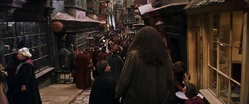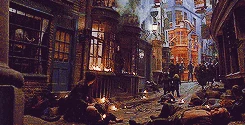An Amazing Sci-Fi Thriller Starring Kiefer Sutherland, Julia Roberts, William Baldwin, Oliver Platt, Kevin Bacon
Nelson Wright (Kiefer Sutherland), convinces four of his medical school classmates — Joe Hurley (William Baldwin), David Labraccio (Kevin Bacon), Randall Steckle (Oliver Platt) and Rachel Manus (Julia Roberts) — to help him discover what lies beyond death. Nelson flatlines for one minute before his classmates resuscitate him. While "dead", he experiences a sort of afterlife. He sees a vision of a boy he bullied as a child, Billy Mahoney. He merely tells his friends that he can't describe what he saw, but something is there. The others decide to follow Nelson's daring feat. Joe flatlines next, and he experiences an erotic afterlife sequence. He agrees with Nelson's claim that something indeed exists. David is third to flatline, and he sees a vision of a girl, Winnie Hicks (Kimberly Scott), that he bullied in grade school. The three men start to experience vivid hallucinations that are related to their afterlife visions, but Nelson's circumstances are particularly freakish; he is repeatedly physically attacked by Billy Mahoney and each day presents with fresh cuts and wounds. Joe, engaged to be married, is haunted by home videos that he secretly filmed of his sexual trysts with other women. David is confronted by a vision of Winnie Hicks on a train, and she verbally taunts him like he did to her.
At Rachel's insistence, the group agrees to let her flatline next. David, disturbed by his hallucinations, has a change of heart and tries to stop the others from giving Rachel their same fate, but she has already flatlined by the time he arrives. They are almost unable to bring Rachel back to life after the power goes out, as the men cannot shock her with the defibrillator paddles. Luckily they manage to recusitate her, but she, too, begins experiencing haunting flashbacks: in her case, memories of her father committing suicide when she was a young girl. One by one, the other men open up about their harrowing experiences to one another, and David decides to put his visions to a stop. He tracks down Winnie Hicks, now grown up, and travels to her home to offer an apology. Winnie thanks him, and accepts his apology. David immediately feels a weight lifted off his shoulders. Nelson, who has accompanied David on the trip, remains alone in David's truck and catches a glimpse of Billy Mahoney darting past outside. Suddenly Billy appears inside the truck and attacks him with a pickaxe. Nelson struggles to fend him off and David arrives on the scene just in time to end the hallucination and prevent serious injury to Nelson, revealing that Nelson was alone in the truck and that he was attacking himself with the pickaxe. Meanwhile, Joe's fiancée, Anne (Hope Davis), unexpectedly comes to his apartment, and she breaks off their engagement after discovering his videos. Joe's visions cease after Anne leaves him. Rachel seeks comfort in the arms of David, and the two spend the night together in bed. While Rachel and David are together, Nelson brings Steckle and Joe to the gravesite of Billy Mahoney. He reveals a long-kept secret: he and his friends inadvertently killed Billy Mahoney as youngsters when they chased him up a tree and pelted him with rocks, causing him to fall to his death. Nelson mutters to himself about making amends, then suddenly storms off, leaving Joe and Steckle stranded.
David leaves Rachel alone in order to pick up Joe and Steckle from the cemetery. While alone, Rachel goes to the bathroom, and encounters her father. He apologizes to his daughter, and her guilt over his death is lifted when she discovers that he was addicted to heroin. Rachel receives a phone call from Nelson, who tells her that he needs to flatline again in order to make amends. He apologizes for involving her and their friends in his plan before hanging up. Rachel and the other three men realize what Nelson is planning and race to save him, eventually reaching him more than nine minutes after his phone call. They work feverishly to save him, but too much time has passed and they decide to give up. Meanwhile, in the afterlife a young Nelson has reversed roles with Billy Mahoney and is being pelted with rocks by him and his other friends while up in the tree. Young Nelson falls from the tree, morphing into the older Nelson just before hitting the ground. He looks up to see Billy Mahoney standing over him and smiling before slowly walking away into a bright light, having made peace. In an act of utter frustration, David gives Nelson one last shock. Miraculously, Nelson is resuscitated, and after regaining consciousness he tells them, "Today wasn't a good day to die."
(Source Wikipedia)

